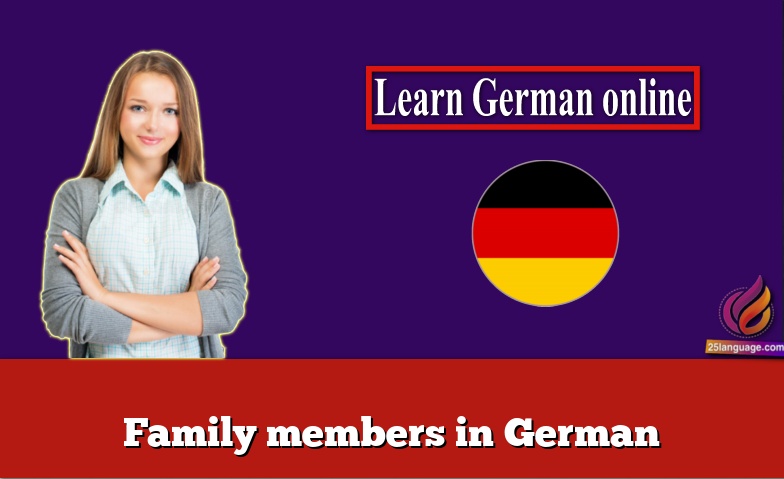Family members in German

Today we are going to talk about Family members in German so you can deal with your family in Germany really well.
Home is where the heart is, they say. And what is in the home? Family! of course, so this is a very important section of the lesson. It’ll give all vocabulary for the family, and later in a different section, you’ll learn how to describe your brothers and sisters or any person! And now to get started lets do some vocabulary…
| English | German |
| Son | der Sohn, die Söhne (plural) |
| Daughter | die Tochter, die Töchter (plural) |
| Father | der Vater, die Väter |
| Mother | die Mutter, die Mütter |
| Dad | der Papa (informal), der Vati/der Papi (informal) |
| Mum | die Mama (informal), die Mutti/die Mami (informal) |
| Grandfather | der Großvater, die Großväter |
| Grandmother | die Großmutter, die Großmütter |
| Grandpa | der Opa, die Opas |
| English | German |
| Sister | die Schwester, die Schwestern |
| Brother | der Bruder, die Brüder |
| Sibiling | die Geschwister |
| Grandson | der Enkel/der Enkelsohn, die Enkelsöhne |
| Granddaughter | die Enkelin, die Enkelinnen |
| Wife | die Ehefrau, die Frau (informal), die Gattin (formal) |
| Husband | der Ehemann, der Mann (informal), der Gatte (formal) |
| Father in law | der Schwiegervater |
| mother in law | die Schwiegermutter |
Now even though many of these are common phrases you and I would say in everyday life, some of these are rather used when you are on a visit to grandmother’s, or things your mother would say.
Maybe you notice some of these in the dialogue. Now you might be asking “How am I going to speak fluent German, if I just learn phrases?” Like I said, these are basically from the dialogue, and you can study these to look at the word order.
Also certain things are just different in German, like “Wie heißt du?” which translates literally to “How are you called?” when we use “What is your name?”. Okay let’s get started on these common phrases…
Du bist ja richtig groß geworden.
You have grown up so much (usual sentence used by Opa und Oma)
Hast du uns etwas mitgebracht?
Have you brought something for us?
Nun sei nicht so aufgeregt.
Now don’t be so excited.
Komm rein.
Come in.
(Sie) Wurden schon ausgepackt.
(They) Have already been opened.
(Sich) Bedanken für etwas.
To thank for something.
Using Formal and Informal Pronouns in the Family
Some very conservative families might still use Sie with grandparents or even parents! This is sometimes practiced in families of nobility or exterritorial cultural islands in which older German customs have survived. However, using “Sie” feels very outdated to the vast majority of people. In practically every family all members use du with each other.




























